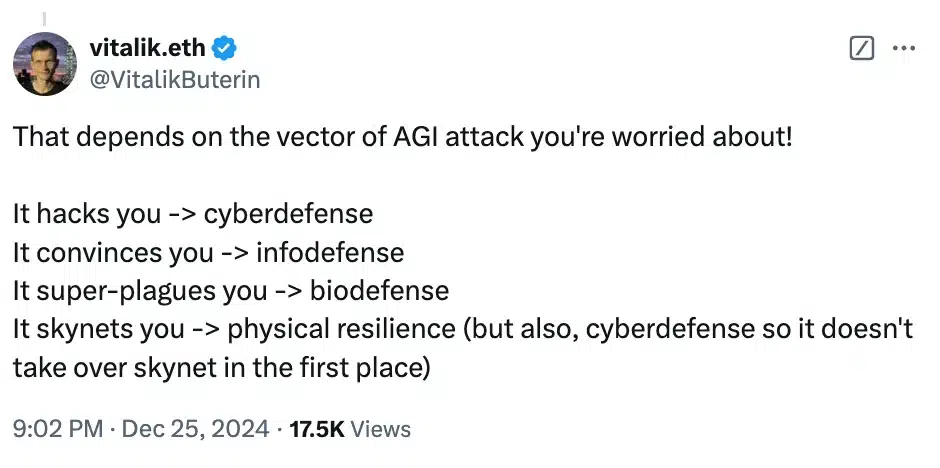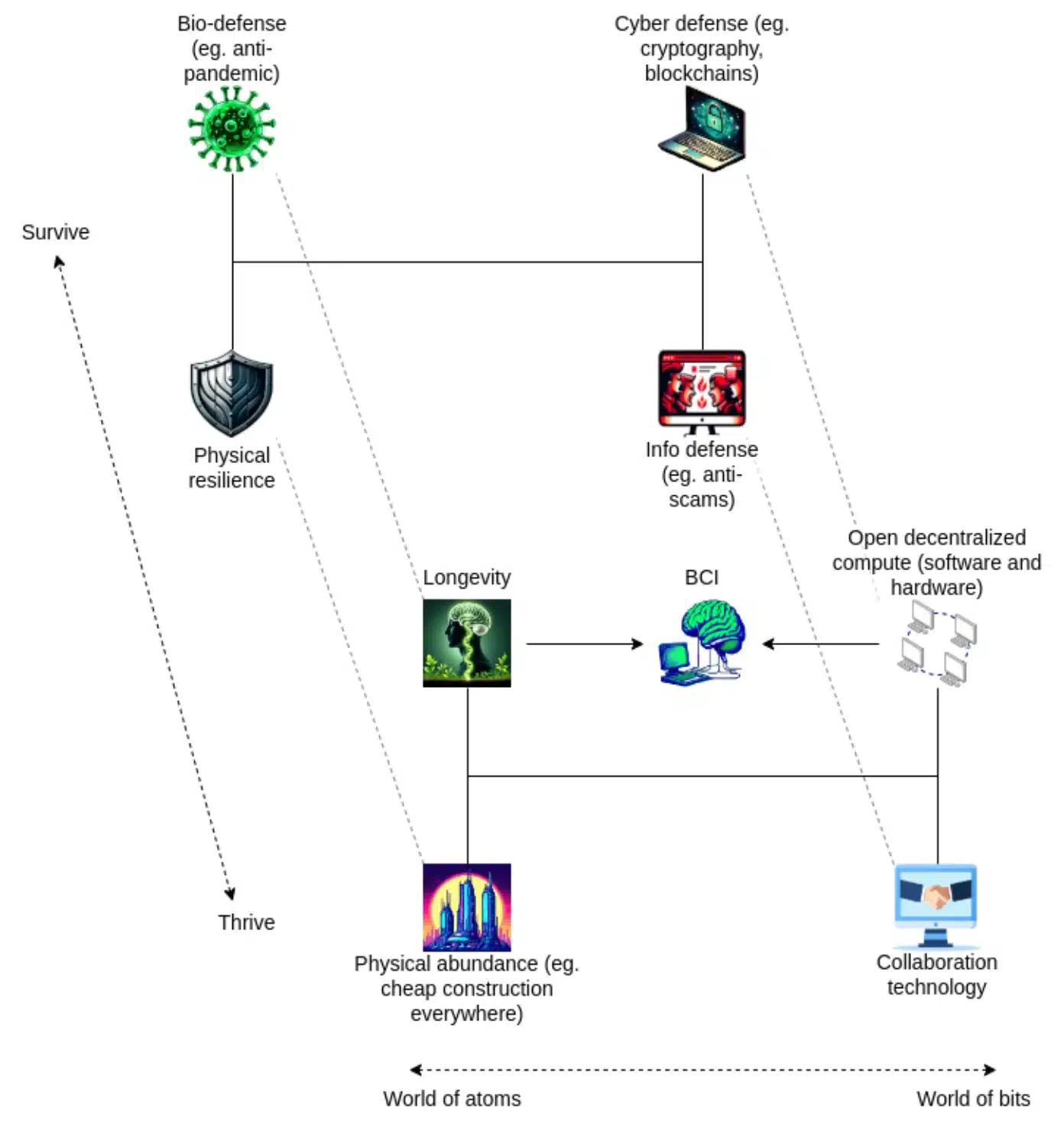- Vitalik Buterin highlighted specific AGI risks, urging targeted solutions for secure technology adoption.
- The Ethereum co-founder advocated for decentralization and self-custody for safeguarding crypto and AI ecosystems.
The release of OpenAI’s latest model, O3, has reignited discussions surrounding the pursuit of Artificial General Intelligence (AGI).
With an impressive 87.5% score on the ARC-AGI benchmark—a key metric for gauging progress toward general intelligence—O3 marks a significant step forward in AI development.
However, alongside the excitement, concerns persist about the potential risks AGI could pose if it surpasses human cognitive capabilities.
Buterin on AGI’s potential risks
Remarking on the same, Ethereum [ETH] co-founder Vitalik Buterin recently shared his perspective on the potential risks associated with AGI.
Posting on X, Buterin provided valuable insights into how AI could evolve to achieve scalability and widespread adoption.
He emphasized the importance of addressing the significant challenges AGI might bring as it becomes more integrated into mainstream applications.
He noted,

Source: Vitalik Buterin/X
Here, Buterin argued against viewing AGI as an unstoppable abstract entity, advocating for a focus on specific attack vectors instead.
He further highlighted potential risks.
These include AGI exploiting software vulnerabilities, spreading misinformation to manipulate humans, deploying digital biological agents, seizing control of physical infrastructure, or surpassing human intelligence entirely.
How did this all start?
For context, his remarks came in response to Balaji’s observations about the accelerating pace of technological advancements, sparking deeper discussions on the implications of AGI development.
In the same thread, Buterin highlighted that cryptocurrency is “only one part of a larger story.” He emphasized its interconnectedness with broader growth and development strategies.
The exec also shared an intricate diagram contrasting the physical “world of atoms” with the digital “world of bits,” illustrating the interplay between these domains.


Source: Vitalik Buterin/X
What’s more?
Buterin also underscored the importance of ensuring the safety of emerging technologies. The exec pointed out that self-custody “is not the default outcome in the current crypto ecosystem.”
Furthermore, he stressed the risks of centralized control in the crypto and AI ecosystems. Users often rely on centralized entities like exchanges, which can lead to vulnerabilities such as hacks and mismanagement.
Highlighting the dangers posed by malicious actors, including scammers leveraging tools like Elon Musk’s AI bot, Buterin advocated for a decentralized framework.
This highlighted that the co-founder envisions an Artificial Internet of Things where private keys give users full control, reducing potential attacks on technologies like smart homes.
Therefore, concluding with a decisive call to action, Buterin emphasized how mainstream adoption in this case is possible and said,
“We have to explicitly strive for it.”

